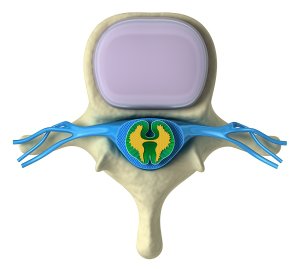News & Insights
A Look at Spinal Cord Injuries
Suffering a spinal cord injury is a life-changing event. Although treatments are available to help individuals cope, it is possible that a patient will be permanently and severely disabled. Spinal cord injuries are often the result of a car accident. If you or a loved one has been diagnosed with a spinal cord injury near Annapolis, an attorney may help you file a lawsuit to seek compensation for medical expenses and other losses. 
Causes
Spinal cord injuries are caused by severe trauma to the vertebrae , discs, ligaments, or spinal cord. This can occur because of the physical force of a car accident or because of an act of violence, such as a knife wound. The fragments from the broken vertebrae, herniated discs, or ligaments can inflict serious damage to the fragile spinal cord. Spinal cord injuries can involve serious damage to the nerves that transmit messages from the brain to the rest of the body. In some cases, the spinal cord is completely severed.
Symptoms
Immediately after a car accident, a spinal cord injury can cause extreme neck or back pain, incoordination, paralysis, and impaired breathing. Many individuals with spinal cord injuries will experience lifelong symptoms. The severity of the injury and the location of the damage will determine the extent of the disability. Some individuals have incomplete injuries, which mean they still retain some motor and sensory function below the point of injury. Or, the injury may be complete, which means the patient has no motor function below the injury point.
Complications
Individuals with spinal cord injuries run the risk of suffering additional complications. Impairment of bladder and bowel control can lead to an increased risk of urinary tract infections, kidney infections, and bladder stones. Individuals with paralysis may suffer from pressure sores, muscle atrophy, weight loss, and breathing difficulties. They are also at risk of circulatory problems such as deep vein thrombosis (DVT) and pulmonary embolism (PE), which can be life-threatening. Since limited mobility results in a lack of sufficient physical activity, victims of spinal cord injuries are more likely to develop cardiovascular disease and diabetes.
